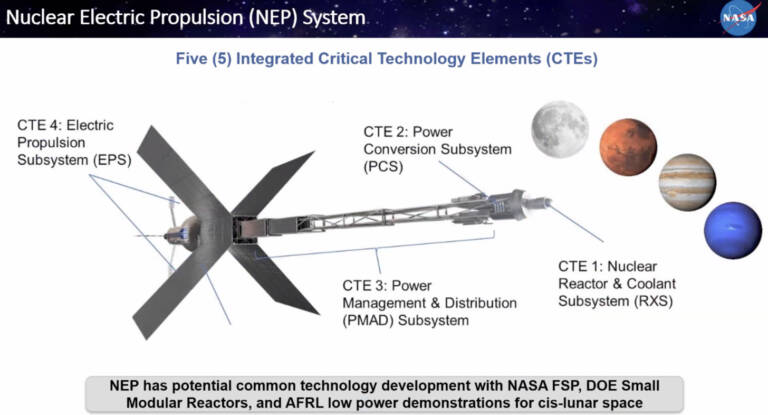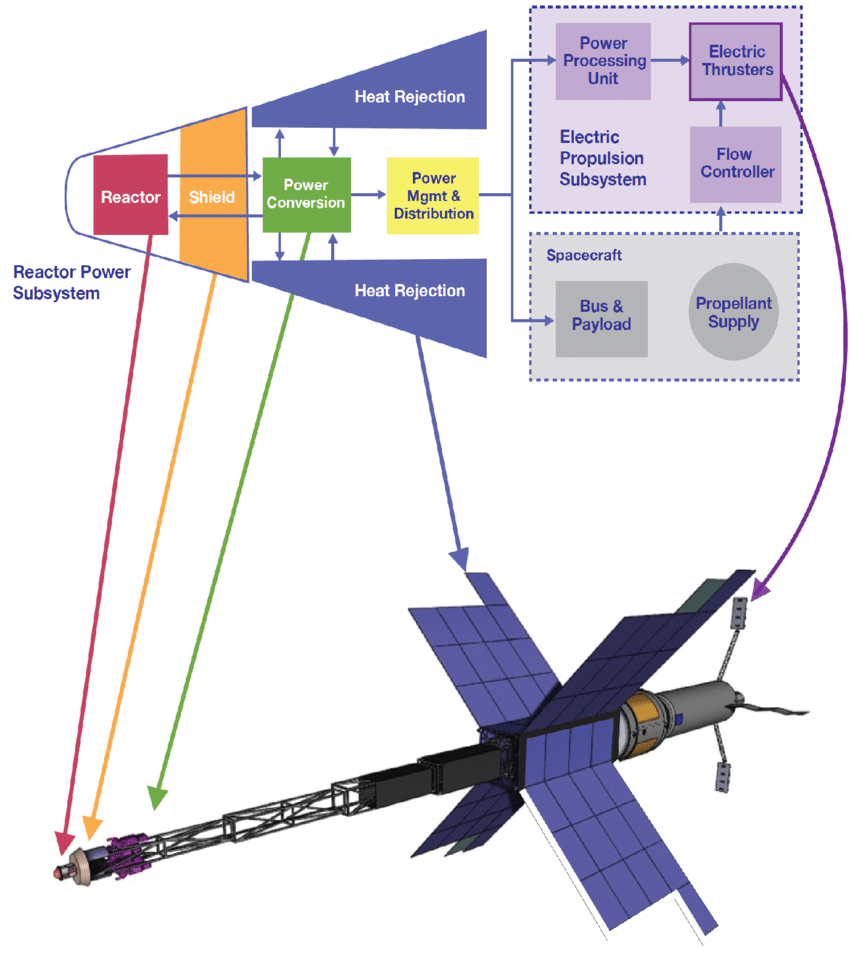Lockheed Martin prepares electro-nuclear rocket

Lockheed Martin has been awarded a contract to develop cutting-edge nuclear-powered spacecraft technology .
Compared to chemical-based rockets, space nuclear propulsion stands out as a technology capable of producing enormous thrust while doubling fuel efficiency. This makes it a promising technology option for future crewed missions to deep space destinations such as Mars.
These technologies are critical for missions that require higher power output and longer operational life than standard solar-powered spacecraft.
According to the official release, the US Air Force Research Laboratory (AFRL) has granted $33.7 million to the company under the Joint Emergent Technology Supplying On-Orbit Nuclear (JETSON) initiative to “mature technologies for nuclear electric power and high-power propulsion and spacecraft design.”
Fission reactor that produces heat
The core of the JETSON effort involves using a heat-generating fission reactor. This heat will be transferred to the Stirling engines, which in turn will generate electrical power of between 6 electrical kilowatts (kWe) and 20 kWe.
This power is substantially greater, almost four times that of typical solar panels, and importantly, it does not require constant exposure to sunlight to operate.
This technique has the potential to generate much more electrical energy than spacecraft that rely on solar panels, which typically produce around 600 watts, or equivalent to the power of six light bulbs.
Nuclear electric propulsion systems offer a viable alternative for power generation on deep space exploration missions, particularly those far from the sun or in shaded locations.
“The development of nuclear fission for space applications is critical to introducing technologies that could fundamentally change how we move and explore in the vastness of space,” said Barry Miles, JETSON program director and principal investigator at Lockheed Martin.
Miles further added, “From high-power electrical subsystem and electric propulsion, to nuclear thermal propulsion or surface fission power, Lockheed Martin is focused on developing these systems with our key government agencies and industry partners.”
The JETSON effort key to future deep space missions
The JETSON team aims to provide electrical power to the spacecraft and its thrusters needed to launch Lockheed Martin's LM2100 telecommunications satellites. This effort is a critical step in advancing human expeditions to the Moon, Mars and beyond using nuclear electric propulsion.
Lockheed will partner with Space Nuclear Power Corp (SpaceNukes) and BWX Technologies, Inc. (BWXT) under this JETSON program, both of which have specialized expertise in the development and design of nuclear power and reactors.
“A future JETSON flight experiment will improve maneuver and power capabilities while shaping future Space Force operations,” said Andy Phelps, CEO of SpaceNukes.
However, this is not the only project currently in development. According to space.com, Intuitive Machines, a Houston-based company, was awarded a $9.4 million contract. The space startup has been tasked with developing a spacecraft concept that will use a small radioisotope energy source.
Alternative nuclear-thermal project. In July, NASA and the US military reportedly selected the company to design, build and launch to test the efficiency of nuclear thermal propulsion. DRACO , or Cislunar Agile Operations Demonstration Rocket, is the name given to this test mission. This propulsion system could be significantly more efficient than traditional chemical methods.

Thanks to our Telegram channel you can stay updated on the publication of new Economic Scenarios articles.
The article Lockheed Martin prepares the electro-nuclear rocket comes from Economic Scenarios .
This is a machine translation of a post published on Scenari Economici at the URL https://scenarieconomici.it/lockheed-martin-prepara-il-razzo-elettro-nucleare/ on Thu, 16 Nov 2023 20:33:14 +0000.

